Girijesh Prasad
Predicting feature imputability in the absence of ground truth
Jul 14, 2020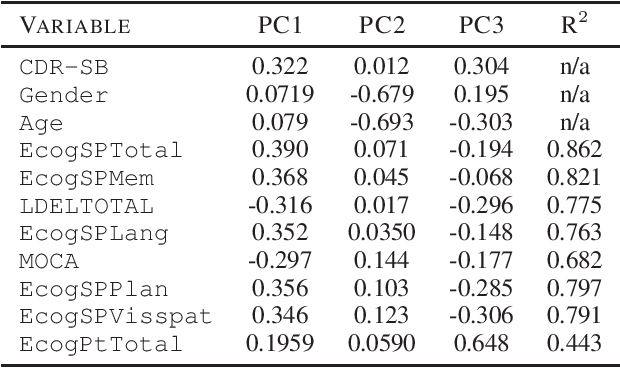
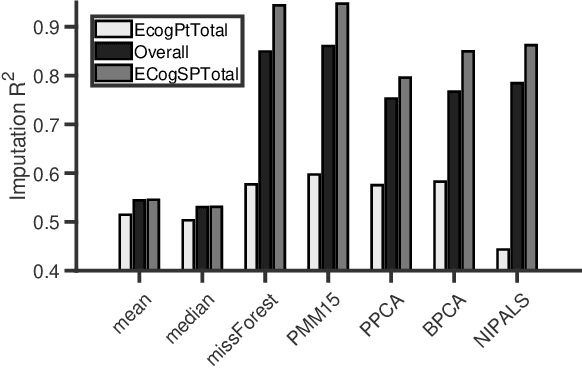
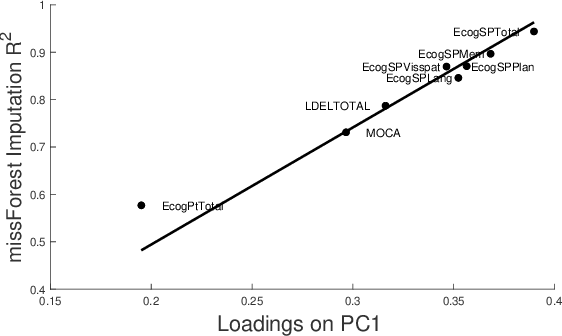
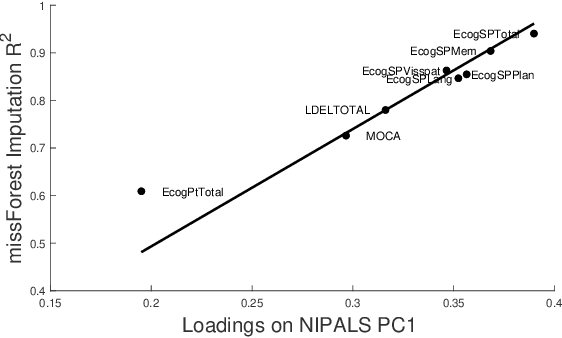
Abstract:Data imputation is the most popular method of dealing with missing values, but in most real life applications, large missing data can occur and it is difficult or impossible to evaluate whether data has been imputed accurately (lack of ground truth). This paper addresses these issues by proposing an effective and simple principal component based method for determining whether individual data features can be accurately imputed - feature imputability. In particular, we establish a strong linear relationship between principal component loadings and feature imputability, even in the presence of extreme missingness and lack of ground truth. This work will have important implications in practical data imputation strategies.
Covariate Shift Estimation based Adaptive Ensemble Learning for Handling Non-Stationarity in Motor Imagery related EEG-based Brain-Computer Interface
May 02, 2018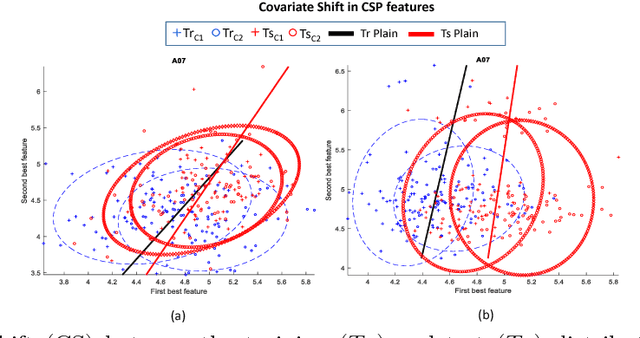
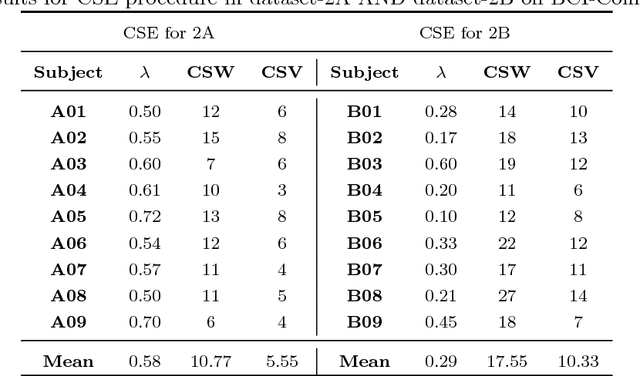
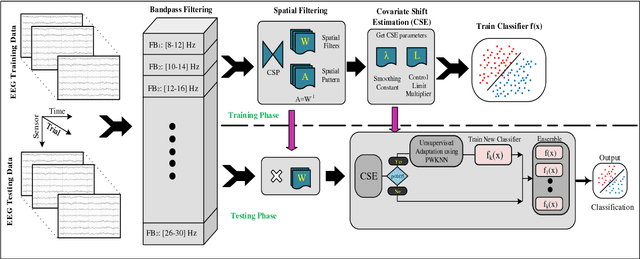
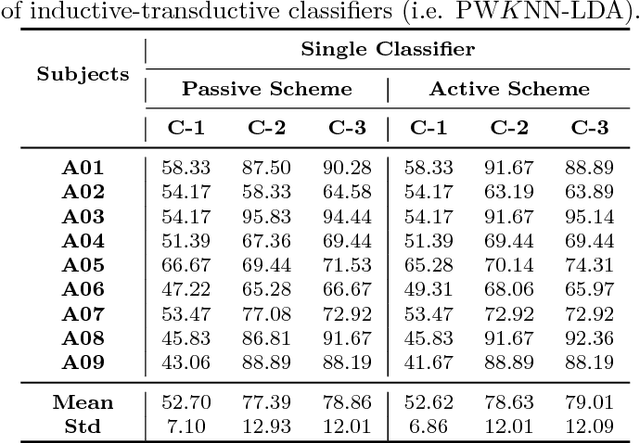
Abstract:The non-stationary nature of electroencephalography (EEG) signals makes an EEG-based brain-computer interface (BCI) a dynamic system, thus improving its performance is a challenging task. In addition, it is well-known that due to non-stationarity based covariate shifts, the input data distributions of EEG-based BCI systems change during inter- and intra-session transitions, which poses great difficulty for developments of online adaptive data-driven systems. Ensemble learning approaches have been used previously to tackle this challenge. However, passive scheme based implementation leads to poor efficiency while increasing high computational cost. This paper presents a novel integration of covariate shift estimation and unsupervised adaptive ensemble learning (CSE-UAEL) to tackle non-stationarity in motor-imagery (MI) related EEG classification. The proposed method first employs an exponentially weighted moving average model to detect the covariate shifts in the common spatial pattern features extracted from MI related brain responses. Then, a classifier ensemble was created and updated over time to account for changes in streaming input data distribution wherein new classifiers are added to the ensemble in accordance with estimated shifts. Furthermore, using two publicly available BCI-related EEG datasets, the proposed method was extensively compared with the state-of-the-art single-classifier based passive scheme, single-classifier based active scheme and ensemble based passive schemes. The experimental results show that the proposed active scheme based ensemble learning algorithm significantly enhances the BCI performance in MI classifications.
* 28 Pages, 3 figures, Neurocomputing
 Add to Chrome
Add to Chrome Add to Firefox
Add to Firefox Add to Edge
Add to Edge